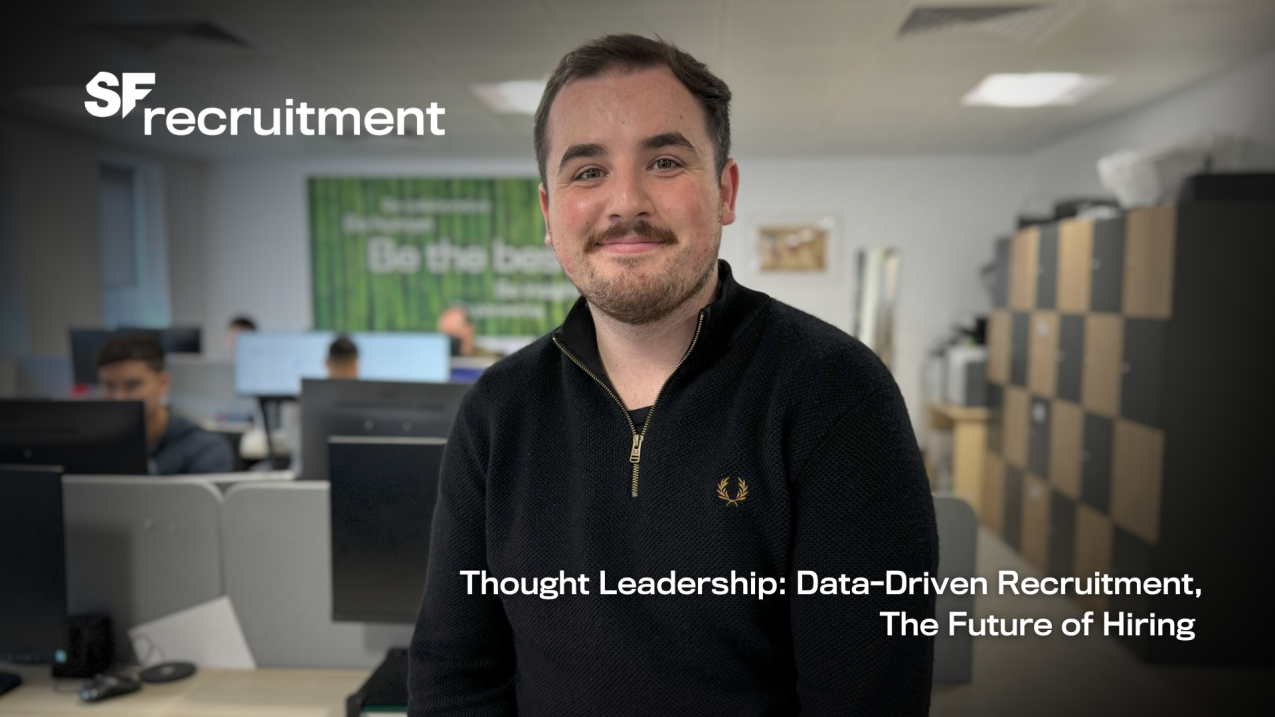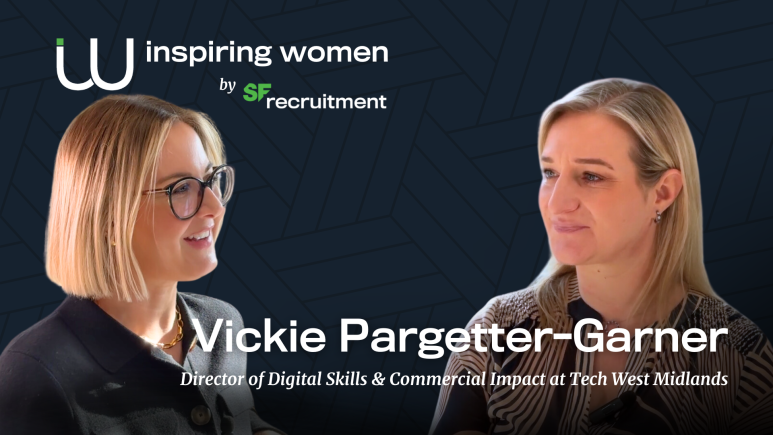
Data-Driven Recruitment: The Future of Hiring

In today’s fast-paced hiring landscape, recruitment has evolved from relying solely on intuition to embracing data-driven strategies. At SF Recruitment, this transformation is at the forefront, as we leverage data insights to optimise every stage of the hiring process. This innovative blend of technology and human expertise not only enhances client outcomes but also reshapes the approach of their consultants. Since joining SF in 2021, Tommy Parkes has witnessed firsthand the critical role that data plays in refining recruitment strategies. As a Candidate Delivery Consultant at SF Technology, he has successfully placed candidates worth over £150,000 in fees over the past 18 months. Much of this success can be attributed to the strategic use of AI and data insights, which have significantly improved efficiency and accuracy in hiring. In this article, he will explore the profound impact of data on recruitment and what it means for the future of hiring practices.
-----------
The Power of Data in Decision-Making
At SF, we use data to inform every decision we make—from analysing time-to-hire and source effectiveness to tracking candidate engagement. These insights enable us to make more informed decisions that help both our clients and candidates. For example, by monitoring where the best candidates are coming from, we can tailor our sourcing strategies to focus on the most effective channels, whether that’s job boards, social media platforms, or personal referrals. It’s about making recruitment a science, not just an art.
But data doesn’t stop at sourcing. We also track candidate behaviour throughout the hiring process. Things like response times, levels of engagement, and even preferences for communication channels are all part of the equation. This allows us to personalise our approach, ensuring candidates have a positive experience from start to finish. Recruitment is, after all, a two-way street, and how we treat candidates is just as important as how we serve our clients.
Optimising Relationships through Cross-Selling and Insights
One of the ways I’ve used data to great effect is by optimising cross-selling opportunities. We analyse what businesses advertise online and match it to where we already have strong relationships. This strategic use of data helps us target the right opportunities for our clients and allows us to offer a holistic approach—whether it's technology, finance, or executive roles, we make sure every team at SF is aligned in delivering comprehensive solutions.
I’ve also found great value in using insight reports to help clients better understand the market. By providing them with data on candidate pools in specific areas, the skills available, and even how many people are actively looking for roles, we offer real-time snapshots of what’s happening in the market. These insights allow our clients to make more informed decisions about their hiring strategies, from understanding what talent is available to forecast hiring needs more accurately.
AI in Action: Making Meetings More Productive
Artificial intelligence has also become an integral part of our toolkit, particularly when it comes to optimising meetings. With the consent of clients and candidates, we use AI tools to ensure that we make accurate notes during meetings and conversations. This allows me to focus more on building warm, meaningful relationships rather than worrying about documentation or missing key points. AI doesn’t replace the human element—it enhances it, allowing us to spend more time where it truly matters: connecting with people.
Staying Ahead of Market Trends
To stay on top of the market, I use a data tool that tracks movements such as company investments, C-suite changes, and other news that could impact hiring trends. Having access to this kind of information means I’m always one step ahead, able to anticipate needs and provide clients with timely, relevant insights. Being up-to-date on these trends not only boosts our credibility but also positions us as trusted advisors who truly understand the industries we serve.
Data-Driven Cross-Team Collaboration
One of the most significant changes I’ve seen is how data has improved our collaboration across teams at SF. We now have a clearer picture of which clients each department is working with, allowing us to cross-sell services more effectively. This means we can offer every client the full range of what SF Recruitment does best—whether it’s technology, marketing, or any other sector. This approach has fostered stronger relationships with clients and made us a more cohesive and efficient organisation.
Balancing Data with the Human Touch
At SF, we firmly believe that data should support—not replace—the human element of recruitment. While data helps us refine our strategies, build efficiencies, and make better decisions, it’s still the personal touch that matters most. Recruitment is about understanding people—their motivations, goals, and aspirations—and no algorithm can replace that level of insight.
By combining cutting-edge technology with our deep industry expertise, we’ve created a recruitment process that’s not only efficient but also highly effective. Our consultants use data to enhance their knowledge, but they never lose sight of the fact that recruitment is about people. It’s this balance that has allowed us to deliver exceptional results and foster long-lasting relationships with both our clients and candidates.
The Future of Recruitment
Looking ahead, I’m excited about where data and AI can take the recruitment industry. At SF, we’re continually innovating and finding new ways to use technology to improve what we do. But no matter how advanced our tools become, I’m confident that the heart of recruitment will always be about human connection. Data might inform our decisions, but it’s the relationships we build that will continue to drive our success.
Related News





